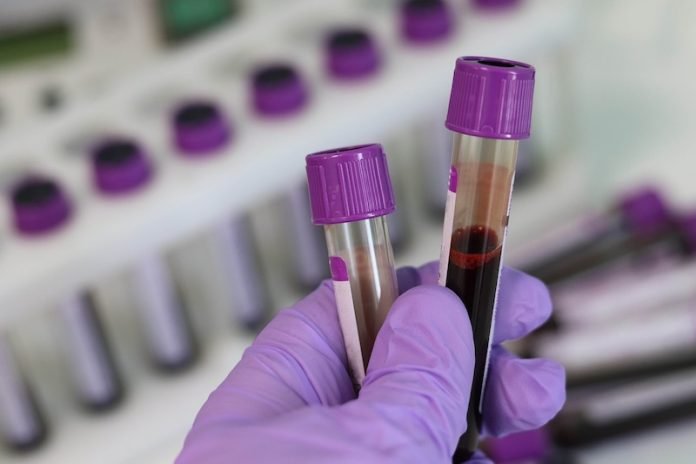
In a new study, researchers found that a blood test could detect early brain changes in Alzheimer’s disease accurately.
The test could detect Alzheimer’s up to two decades before people develop memory loss and confusion, which are major symptoms of the disease.
The research was conducted by a team from Washington University School of Medicine in St. Louis.
The test was developed two years ago with a technique called mass spectrometry to precisely measure the amounts of two forms of amyloid-beta in the blood: amyloid-beta 42 and amyloid-beta 40.
The ratio of the two forms goes down as the amount of amyloid-beta deposits in the brain goes up.
In the study, the researchers reported that the test could help predict whether the protein has accumulated in the brain.
When blood amyloid levels are combined with two other major Alzheimer’s risk factors – age and the presence of the genetic variant APOE4 – people with early Alzheimer’s brain changes can be identified with 94% accuracy.
The findings represent another step toward a blood test to identify people on track to develop Alzheimer’s before symptoms arise.
The team says the test may be even more sensitive than the gold standard – a PET brain scan – at detecting the beginnings of amyloid deposition in the brain.
The blood test could provide a way to efficiently screen for people with early signs of disease so they can participate in clinical trials evaluating whether drugs can prevent Alzheimer’s dementia.
The team believes the blood test may become available at doctors’ offices within a few years, and its benefits will be much greater once there are treatments to halt the disease process and forestall dementia.
The current study involved 158 adults over age 50. All but 10 of the participants in the new study were cognitively normal, and each provided at least one blood sample and underwent one PET brain scan.
One author of the study is Randall J. Bateman, MD, the Charles F. and Joanne Knight Distinguished Professor of Neurology.
The study is published in the journal Neurology.
Copyright © 2019 Knowridge Science Report. All rights reserved.



